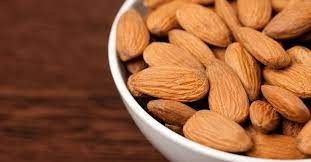Your Guide to Nourishing Your Body and Mind: Unlocking the Secrets of Healthy Eating and Nutrition”
Maintaining a nutritious diet is more crucial than ever given the fast-paced, processed, and unhealthy food alternatives of today. A healthy, well-balanced diet not only supports physical wellbeing but also positively affects mental clarity and general energy. This article explores the idea of good eating and nutrition, offering insightful information and helpful advice to assist you in making decisions that improve your wellbeing.
The Basics of Healthy Eating: A healthy diet consists of a range of foods that provide the body the nutrients it needs. An appropriate intake of macronutrients, micronutrients, and dietary fibre is guaranteed by a balanced approach. You may make decisions that promote your health by being aware of the many elements of a good diet.
Understanding Macronutrients: The body needs a lot of macronutrients to function properly. Carbohydrates, proteins, and lipids are among them. Each macronutrient is essential to body processes and offers varied quantities of energy. Intake of these macronutrients must be balanced for optimum health.
The body uses carbohydrates as its main source of energy. Foods including grains, fruits, vegetables, and legumes contain them. Making the decision to consume complex carbs, including whole grains, encourages a continuous release of energy and improves digestive health.
The building blocks of cells and tissues, proteins are crucial for tissue development and repair. Lean meats, poultry, fish, dairy products, legumes, and nuts are all excellent sources of protein. Your diet’s diversified amino acid composition is ensured by include a range of protein sources.
Despite their unsavoury image, fats are essential for the body’s processes. Healthy fats, like those in avocados, nuts, seeds, and olive oil, provide you energy, help your body absorb vitamins, and promote the function of your brain. For the sake of cardiovascular health, it’s crucial to consume a variety of fats.
How to Include Micronutrients in Your Diet: Vitamins and minerals are examples of micronutrients that are crucial for general health and wellbeing. They assist several body processes, such as cellular activity, bone health, and immune system performance. Aiming for a vibrant and varied meal might assist guarantee that you are getting enough micronutrients.
The Function of Dietary Fibre in a Healthy Diet: Dietary fibre is important for digestive health because it promotes regular bowel motions. Fruits, vegetables, whole grains, legumes, and nuts all contain it. A healthy gut flora is supported by consuming a sufficient quantity of fibre, which also encourages satiety and helps with weight control.
The Importance of Hydration: It’s crucial for your general health and wellbeing to be hydrated. Numerous biological functions, such as digestion, nutrition absorption, and waste elimination, need water. Aim to consume at least 8 glasses of water each day, and increase your consumption while you’re exercising or when the weather is hot.
Healthy Eating for Weight Management: Reducing the risk of chronic illnesses requires maintaining a healthy weight. A healthy weight may be attained and maintained with the aid of a balanced diet and frequent exercise. Put your attention on mindful eating, portion management, and adding regular exercise to your schedule.
Plans for Meal Preparation: Meal planning and preparation may make a big difference in developing good eating habits. You may prevent impulsive food choices and guarantee a well-balanced diet by making a plan for your meals in advance and preparing wholesome items. To keep meals interesting, use a range of healthful foods and try out new dishes.
The Advantages of Mindful Eating: Mindful eating is focusing on the here and now and appreciating each meal. You may improve digestion, your eating experience, and your connection with food by practising mindfulness during meals. Enjoy the nutrients your meals bring by taking your time, using your senses, and slowing down.
Budget-Friendly Healthy Eating: Eating well doesn’t have to be costly. You may maintain a nourishing diet while keeping within your budget with careful planning and shrewd buying techniques. Look for seasonal vegetables, buy in bulk when you can, and think about making meals at home rather than going out to eat.
Eating out doesn’t have to throw your healthy eating routine into a loop. Here’s how to make good decisions. Even in restaurants, you may choose healthier options by following a few easy guidelines. Select menu items that include lean meats, fresh produce, and healthy grains. Instead of fried alternatives, choose grilled, steamed, or roasted foods.
The Function of Healthy Snacking: When done properly, snacking may be a component of a healthy diet. Pick healthy snacks like yoghurt, raw almonds, or fresh fruits. Avoid processed and sugary snacks since they contain empty calories. Use portion control and pay attention to your body’s signals of hunger and fullness.
The Effect of Processed Foods on Health: Processed foods often include high concentrations of artificial additives, harmful fats, and added sugars. Processed food intake has been associated with a higher risk of obesity, heart disease, and other health issues. Reduce your consumption of processed foods and choose more natural, complete foods.
Superfoods: Fact or Myth? Due to their high nutritional content, superfoods are often hailed as having remarkable health advantages. It’s vital to keep in mind that a balanced diet consisting of a range of complete foods is essential to optimal health, even while certain foods contain concentrated nutrients. Include nutrient-dense foods in your diet, such as berries, leafy greens, and fatty fish.
Nutrition and Mental Health: Nutrition is important for maintaining mental health. B vitamins and omega-3 fatty acids, for example, enhance brain health and mood regulation. Including foods high in these nutrients in a balanced diet may improve general mental health.
good Eating for Longevity: The cornerstone of longevity is a good diet. You may strengthen your body’s resistance to illness and lower your chance of developing chronic conditions by putting an emphasis on complete, nutrient-dense diets and exercising sensibly. Keep in mind that maintaining a healthy diet is a lifetime endeavour and that even little, sustainable adjustments may have a big influence on your general well-being.
Conclusion: Maintaining optimum physical and mental well-being requires a healthy diet and nutrition. You may start along the path to a better and happier life by learning the foundations of healthy eating, adding a variety of nutrient-rich foods into your diet, and making conscious decisions.







